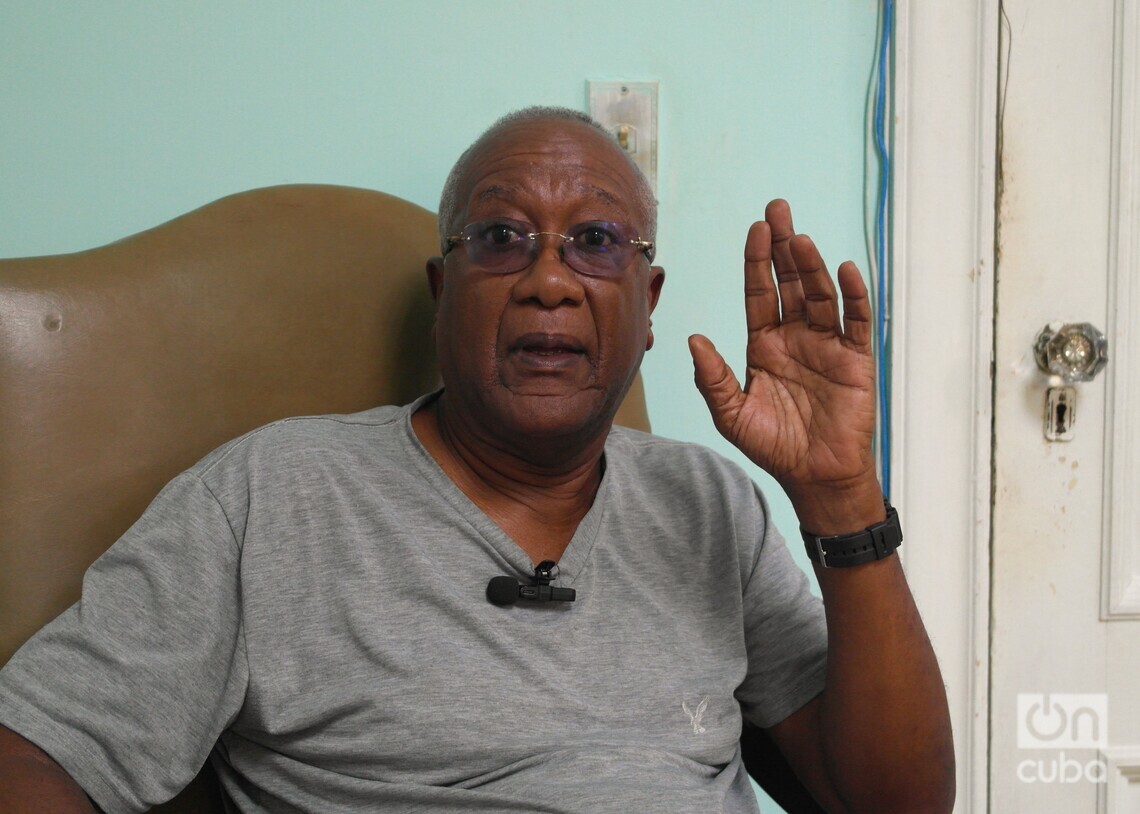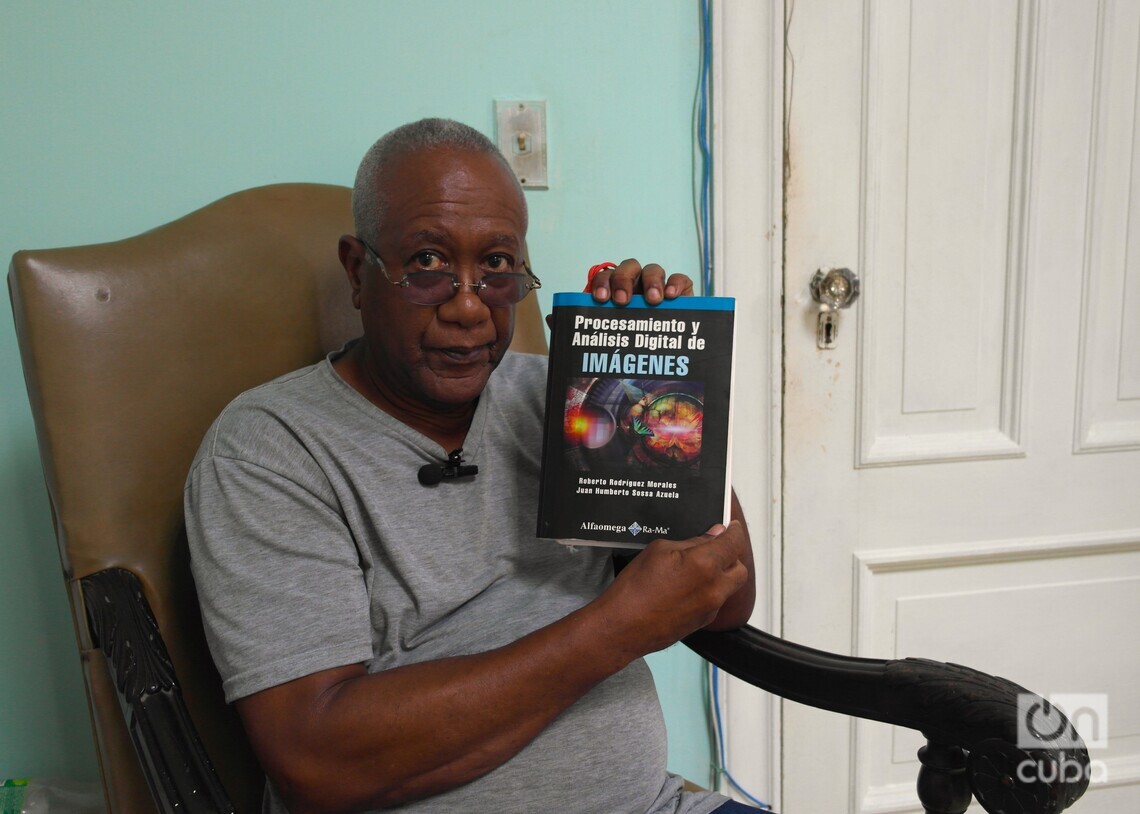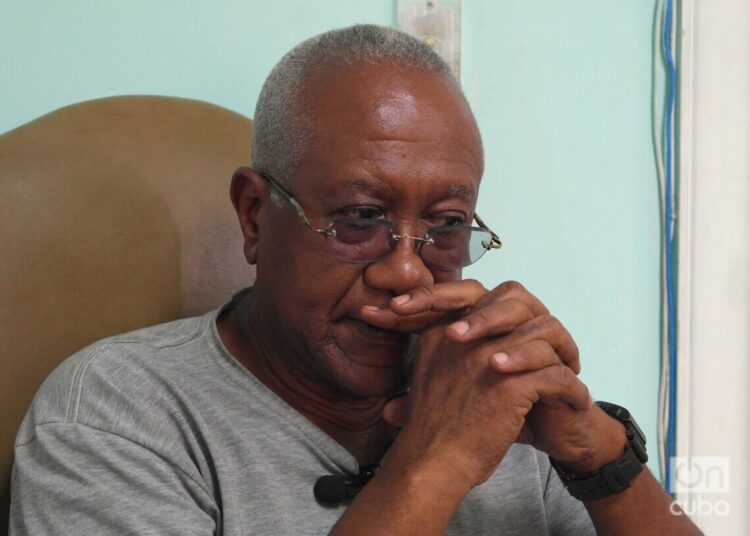“Artificial Intelligence (AI) cannot be feared,” affirmed, convinced, Doctor of Science Roberto Rodríguez, director of the Institute of Cybernetics, Mathematics and Physics, a center subordinated to the Ministry of Science, Technology and Environment (CITMA) that offers scientific-technical services, in an interview with OnCuba.
The Cuban expert, recently selected as editor of two U.S. magazines dedicated to the study of these disciplines, considered that regulations are required to prevent the application of AI from having negative effects.
On the other hand, he criticized the abuse of the term, coined in 1956 by the U.S. computer scientist John McCarthy, to refer to simple applications of mathematics and other sciences.
“Now everything is associated with AI, but a system is intelligent when it can learn something and, based on that learning, make predictions. Also, if there is no database, the system has no way to learn,” said Rodríguez, who graduated in Physics from the University of Havana in 1978.
In this regard, he commented that a more general culture is required on the subject and highlighted the formative role that the media could have in achieving this.
He said that it is important to understand that AI does not pose a risk per se for professionals, but that public policies must guarantee the humanization of work instead of replacing human work with machines.
Cuba needs AI
Roberto Rodríguez, who has dedicated his professional life to digital image processing and analysis, is the author of books on the subject and gives lectures at universities in the region, believes that, for Cuba, in the midst of an economic crisis, the use of Artificial Intelligence in various sectors is a necessity.
He insisted on the value of applied science in the modeling of economic, social and natural phenomena, as well as the projection of possible scenarios.
“There is so-called precision agriculture, which brings together different techniques and knowledge associated with AI. Using drones, plantations can be monitored and the moment when they need pesticides, water or other treatment can be detected. The savings are evident and the workforce is better utilized,” he said.
In addition, he illustrated how valuable the application of the principles of the fourth industrial revolution or industry 4.0 would be, which includes integrating intelligent digital technologies in manufacturing processes, in the use of raw materials.
“With appropriate technologies, in a continuous production of goods in a factory, defective products can be detected from the beginning and reincorporated into the cycle without having to wait for the final inspection, which generates an expense,” he explained.

Regarding the feasibility of projects of this type, with high costs in their execution, the Cuban scientist responded that they must be designed with the idea of closing cycles or, in other words, that they are profitable to guarantee their permanence over time.
Meanwhile, he commented that in Cuba the application of AI has had greater possibilities and results in the public health system, due to the government’s will. For example, as a researcher associated with the BioCubaFarma Group, during the pandemic he participated in studies dedicated to the training of automated systems to detect COVID-19 based on samples and images.
For his participation in these investigations, he received the Cuban Academy of Sciences Prize in 2021, which was added to the one received in 2009 and the Carlos Juan Finlay Order (2013), the highest award given to scientists on the island.
Need for incentives
Rodríguez affirms that one of the reasons why greater applications of AI in Cuba are not achieved in branches beyond health is the lack of moral and material incentives.
“Behind a researcher, a scientist, there is a father, a mother of a family, there is a human being with interests, tastes, that today are not covered. The economic crisis has an impact on this. It is a reality,” he commented.
“I think there is a solution. The best way is to look for a group of experts who live these realities, and who think about how to solve them. Not people from up high, but for the scientists themselves to propose what the solutions are, what are the ways to incentivize, to stimulate,” he affirmed.
This reality is taking its toll on the “critical mass” of researchers, acknowledges Rodríguez, who has seen how his own center, fundamentally dedicated to this type of studies, has been left without specialists, with the consequent loss of lines of research and scientific results.
“When a young scientist tells you he is leaving for a master’s degree or a doctorate, he does not return. People do not notice because we are not artists or athletes,” he comments.
However, it is not only emigration that affects. Due to the low income they receive, many researchers, mostly young, prefer to leave their profession behind to work in other less complex and recognized but more lucrative ones, in the scenario of the Cuban crisis and salary disparity.
In this regard, Rodríguez shared with OnCuba the story of a tutor, who alternates a study dedicated to solving a health problem with the sale of products on the Internet. “And if I do not support her by offering her teleworking, she will leave. It would be a shame: she is an excellent professional,” he said.

Crisis and Science in Cuba
If the situation in Cuba continues, the results of science could be diminished, the Cuban expert confirmed. However, he remains hopeful.
“We have shown that we can get out of the crisis if we are capable of thinking deeply and intelligently,” he said.
In this sense, he praised the government’s intention to create groups of experts to analyze problems but clarified that more active minds are needed. “People with results in the last five years, with an active curriculum, not those who are called only for having prestige,” he indicated.
Rodríguez considered that the application of science, with responsibility, could bring Cuba forward.
“We have to be capable of creating systems in which human beings do not have to intervene for them to be successful. That is how we win the fight against today’s crisis. We have to encourage people to want to produce, without the need for a leader to go to the place to check what is done. We need an algorithm that does not depend on one person or another to work, but that does it automatically.”










